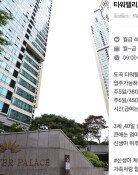Web Scare Stories Targeting Children
A fourth-grader in the second-largest port city of Incheon got two text messages from her friend two days ago. They said, President Lee Myung-bak sold the Dokdo islets and Korea will fall into ruin if we import U.S. beef.
The students parents said they were flabbergasted that one of their daughters friends sent these groundless accusations now spreading through the Internet.
A picture diary titled Mad Cow Disease reportedly written early this month by an elementary school student is in wide circulation on the Web. One reply to the diary written by a teacher commends the child, saying, How did you know this, from TV? The president seems to be inferior to OO.
Another message mocked the Lee administration, saying, Even elementary school students are aware of the risk of mad cow disease but the government is not.
Scores of unsubstantiated scare stories are rapidly spreading even among children through the Internet and mobile phones. The distorted and exaggerated data is corrupting young children who believe them as true and use them as a basis for activism.
Internet homepages are targeting children through major Web portal sites such as Yahoo! Korea`s Ggureogi and Junior Naver. Five major scare stories are rampant on the Web, including myths on mad cow disease, the Dokdo islets and the pay-as-you-go online payment system.
Certain stories are believed to have been fabricated by adults posing as children to promote the notion that government policies pose a risk to childrens health.
A Cheong Wa Dae for Children site set up by the presidential office is being bombarded with posts such as, We dont want to eat mad cows. Please save our lives. We are still young children in elementary school. Certain replies have raised suspicion that the post is not the writing of a child given the content and language.
Vicious attacks on the government are going beyond the spread of groundless rumors. Some present action plans and guidelines, urging students and people to skip school or boycott food brands for a certain period.
One such guideline is, A Conversation between Dad and Daughter, which urges the girl to ask her father, I am extremely worried about mad cow disease. Please assure me by showing me logical and scientific evidence showing the safety of U.S. beef.
Children, if you are too young to join politics, one way to express your opinion is to stir up your parents, it said, reflecting an ulterior political motive.
I was appalled when my son asked me for an explanation on the guideline, said a 45-year-old parent in the northern Seoul suburb of Goyang, Gyeonggi Province, whose son is a sixth grader. Most parents are fumbling for an answer, which Im afraid will make children believe the wrong information.
The Education, Science and Technology Ministry will convene an emergency meeting of school superintendents today on warding off scare stories on mad cow disease and preventing students from joining rallies against the resumption of U.S. beef imports.
Education, Science and Technology Minister Kim Doh-yeon will discuss with superintendents from cities and provinces dealing with unfounded rumors such as closures of primary, middle, and high schools on May 17 and mass teenage participation in protests, said a ministry official.
Students who skip school on May 17 will be punished in accordance with school regulations and each education office will step up discipline and come up with their own concrete measures.
Headline News
- Med professors announce intention to leave hospitals starting Thursday
- Bridge honoring Sgt. Moon Jae-sik unveiled in Pennsylvania
- Chief of Staff Chung tells presidential secretaries to stay away from politics
- US FTC bans noncompete agreements
- N. Korea launches cyberattacks on S. Korea's defense companies







